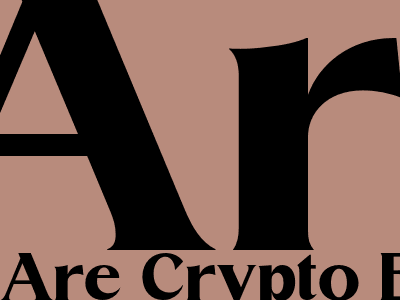
Are Crypto Banks In Danger?
FDIC ‘Pause Letters’ Spark Fears Of Operation Chokepoint 2.0
Crypto Banks Face Scrutiny Amid Increased Regulatory Pressure
The banking industry is once again under fire, this time from the Federal Deposit Insurance Corporation (FDIC). The FDIC has recently issued a series of "pause letters" to several crypto banks, effectively freezing their ability to take on new depositors.
This action has sent shockwaves through the crypto community, as it raises concerns that the government is preparing to crack down on crypto banks in a similar manner to how it cracked down on payday lenders during the Obama administration.
If the FDIC does indeed move forward with Operation Chokepoint 2.0, it could have a devastating impact on the crypto industry. Crypto banks are essential to the functioning of the crypto ecosystem, as they provide a safe and convenient way for people to buy, sell, and store their crypto assets.
What Is Operation Chokepoint?
Operation Chokepoint was a controversial initiative launched by the Obama administration in 2013. The initiative was designed to crack down on predatory lending practices by cutting off access to the banking system for businesses that were accused of engaging in such practices.
Operation Chokepoint was widely criticized by civil liberties groups, who argued that it gave the government too much power to target businesses without due process.
What Are The Implications For Crypto Banks?
If the FDIC does move forward with Operation Chokepoint 2.0, it could have a number of negative consequences for crypto banks:
- It could make it more difficult for crypto banks to operate, as they would be unable to access the banking system.
- It could make it more difficult for people to buy, sell, and store their crypto assets.
- It could lead to a loss of confidence in the crypto industry.
What Can Crypto Banks Do?
Crypto banks are taking steps to prepare for the possibility of Operation Chokepoint 2.0. Some banks are exploring the possibility of obtaining licenses from other countries, while others are developing their own proprietary banking systems.
It is still too early to say what the long-term impact of the FDIC's pause letters will be. However, it is clear that crypto banks are facing increased regulatory pressure, and they need to be prepared to take steps to protect themselves.